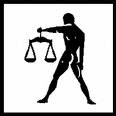Most everyone who speaks a European language natively is familiar with the
Golden Rule, attributed to Jesus Christ:
Therefore all things whatsoever ye would that men should do to you, do ye even so to them.1 This is usually simplified to
Do unto others as you would have them do unto you. Even more concisely as
Love your neighbor as yourself.
2Many do not know that the basic idea, what has been called the
Ethic of Reciprocity, is actually not unique to nominally Christian societies. ReligiousTolerance.org, a non-sectarian educational web site catalogs
twenty one separate expressions of this idea from many religions and philosophical schools from as early to as the fifth century BCE.
Many of these expressions articulate a positive formulation. One is enjoined, or even
compelled to take active steps toward others. Some of the criticisms, such as
George Bernard Shaw's Do not do unto others as you would expect they should do unto you. Their tastes may not be the same and
Karl Popper's The golden rule is a good standard which is further improved by doing unto others, wherever possible, as they
want to be done by are rooted in just this positive viewpoint. It has its worst expression in busybodies and the fabled
Nanny State.
The rule is not always stated positively. Some ancient Greek philosophers spoke not of doing good things to others, but of not doing bad things.
Do not to your neighbor what you would take ill from him. Pittacus
Avoid doing what you would blame others for doing. Thales
Do not do to others what would anger you if done to you by others. Isocrates
The distinction may be subtle, but it is critical. What I perceive as my good and what you perceive as good for me might not coincide. What would be hurtful if done to you is something I'd likly want to avoid having done to me as well. The boundaries defined by not doing leave room for the positive expressions of good to develop. Good fences make good neighbors.
Among the many forms this rule takes the Jewish sage, Hillel, put it succinctly:
What is hateful to you, do not to your neighbor.3I'm neither Christian nor Jew, but I find interesting to note that both Jesus and Hillel say that the entire will of God for the faithful is contained in this rule. Hillel said
That is the whole Torah, while the rest is the commentary thereof; go and learn it. Jesus said
For this is the law and the prophets and in another place
This do, and thou shalt live.
How would it be to use this lens of reciprocity in how you acted and how you viewed the world? How would you see your daily interactions with family, friends and coworkers? How would you view the news from the robbery of a convenience store to the wars that never seem to end?
I will be posting stories and thoughts on how this rule, The One Rule applies to life. I welcome any thoughts or comments from those who read this.
1.
Matthew 7:12.2.
Luke 10:27.3.
Shabbath 31a, Babylonian Talmud.
